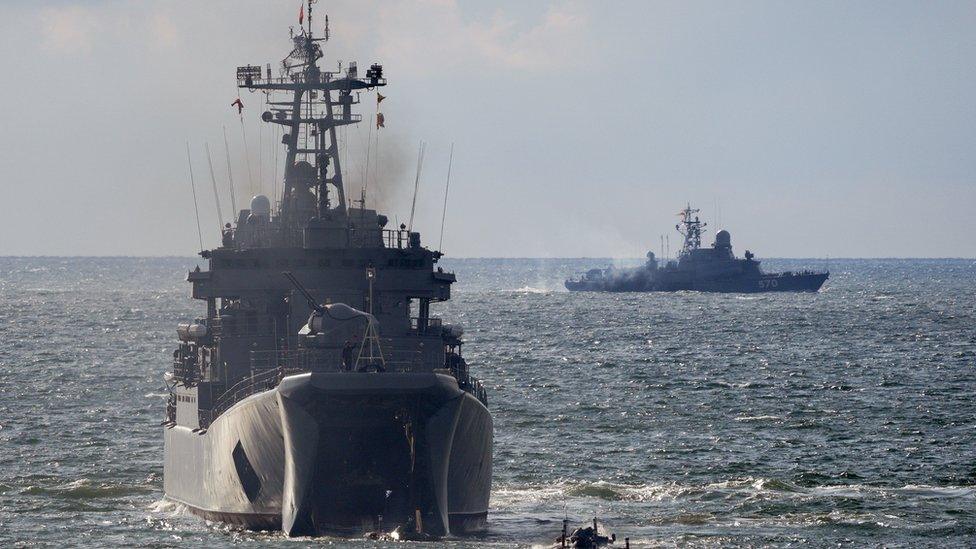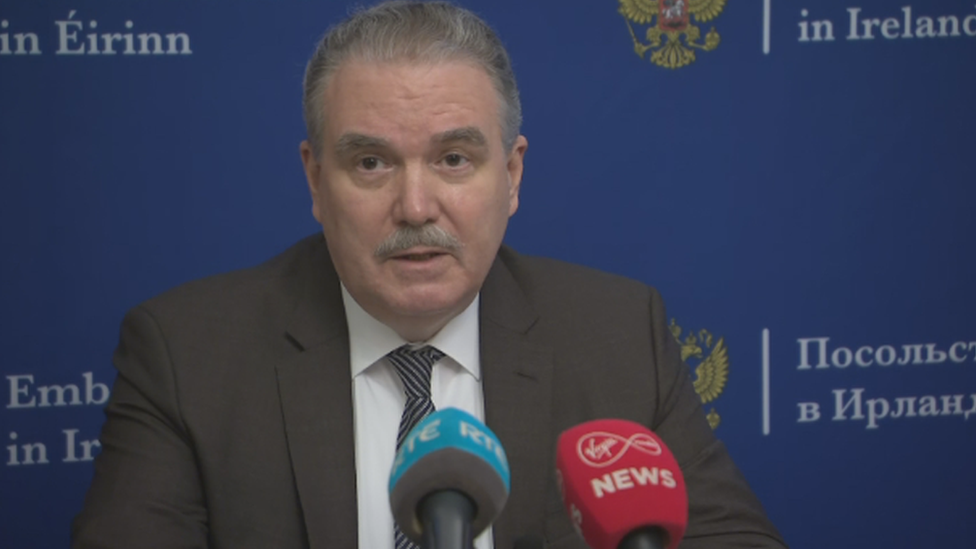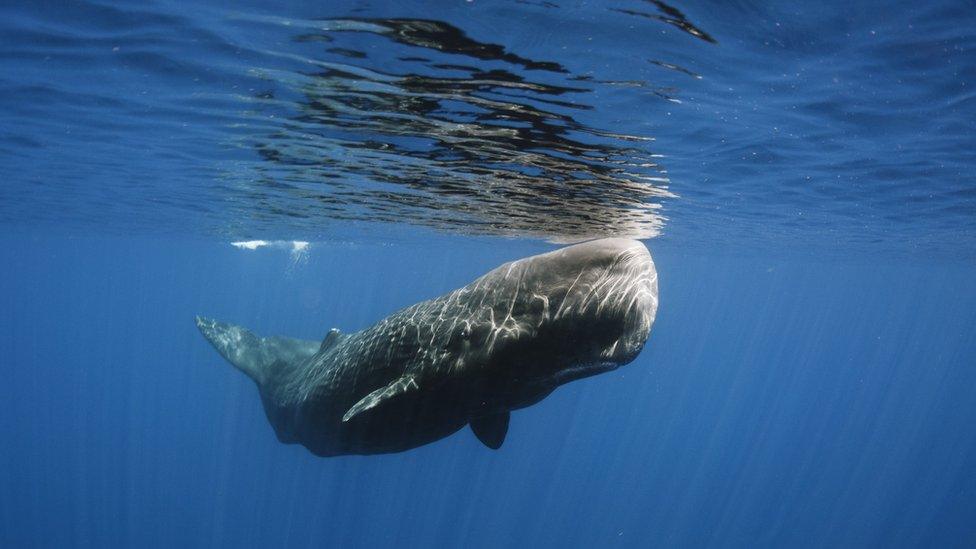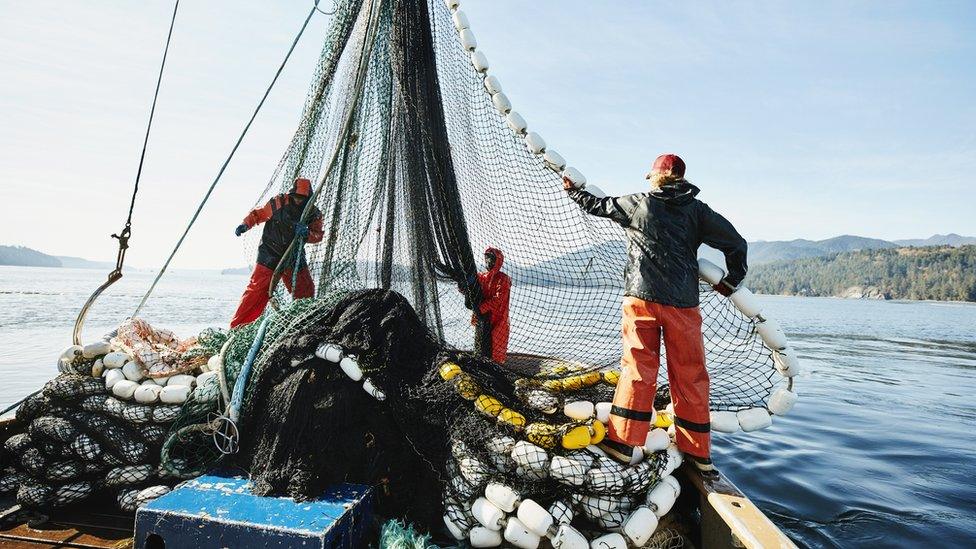Russia: Military drill moved further from Irish shore
- Published

Russian ships take part in exercises in the Baltic Sea in October 2021
A Russian military exercise has been moved further from the Irish coast, after pressure from politicians and fishermen.
It has been moved outside of the Republic's Exclusive Economic Zone (EEZ).
The 'live-fire' exercise had been due to take place 240km off the southwest coast.
Irish Foreign Affairs Minister Simon Coveney said the exercises would be "relocated outside of Ireland's EEZ".
Mr Coveney had previously said Ireland would not welcome drills being carried out in the EEZ, but claimed the country had no power to stop Russia.
Allow X content?
This article contains content provided by X. We ask for your permission before anything is loaded, as they may be using cookies and other technologies. You may want to read X’s cookie policy, external and privacy policy, external before accepting. To view this content choose ‘accept and continue’.
The decision to relocate the exercise had been made as a "gesture of goodwill", the Russian ambassador to Ireland, Yuri Filatov, said on Saturday.
Mr Filaov said the decision was taken so as not to "hinder fishing activities by the Irish vessels in the traditional fishing areas".
A group of fishermen who used the area had also warned that they would stage peaceful protests against the action if it went ahead as originally planned.
The Irish South and West Fish Producers Organisation had highlighted the area's importance for members.
They said their desire was to protect biodiversity and marine life.
The Irish Junior Minister Michael Noonan had also warned that the planned drills could also have "devastating" consequences for a number of species in the area, including several types of whales.
Mr Filatov previously described the controversy as "overblown".
At a press conference in Dublin on Monday he referred to the debate as a "non-story" which had become part of a "propaganda campaign" about an alleged Russian threat to Europe.

Mr Filatov said the exercise posed no threat
The Chairman of the Oireachtas Foreign Affairs and Defence Committee said he was hopeful Mr Filatov would appear to answer the committee's questions.
While stating that no ambassador was accountable to the Irish parliament, he said there were "significant issues of public interest" that the committee should be briefed on.
Related topics
- Published29 January 2022

- Published25 January 2022
